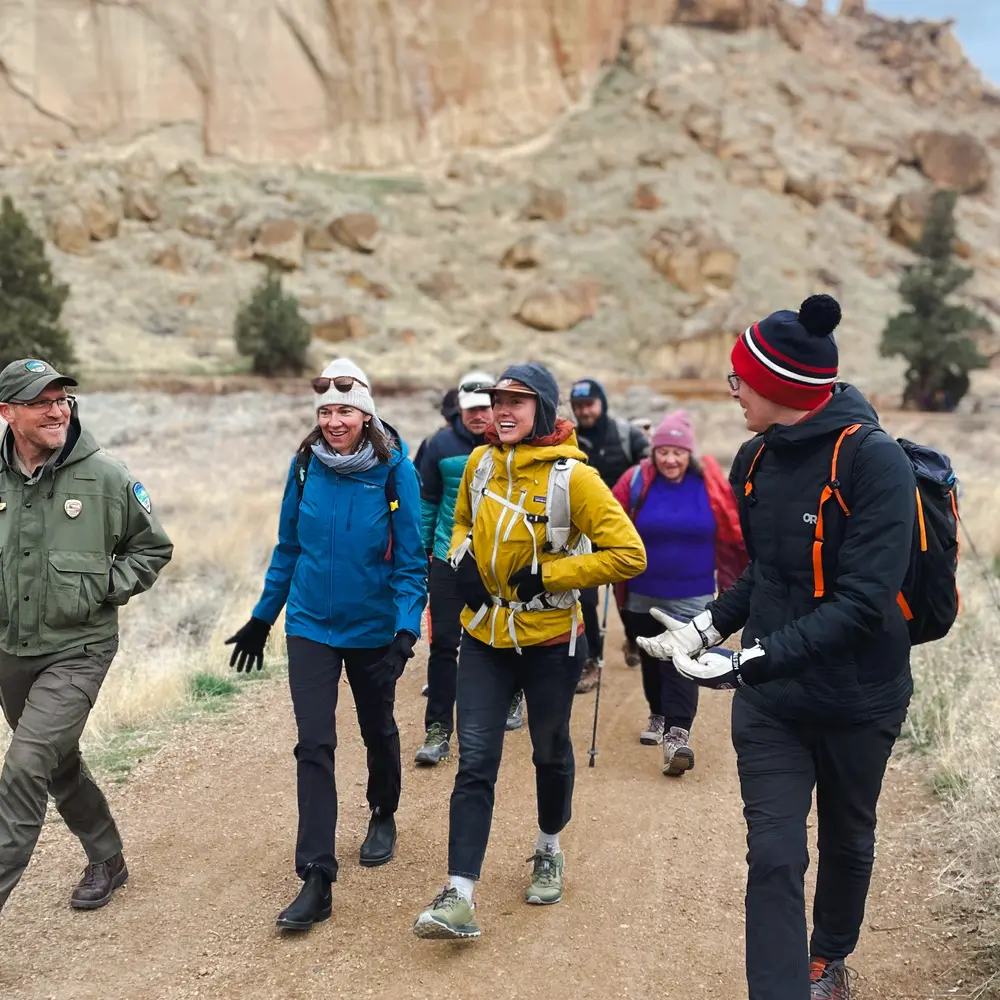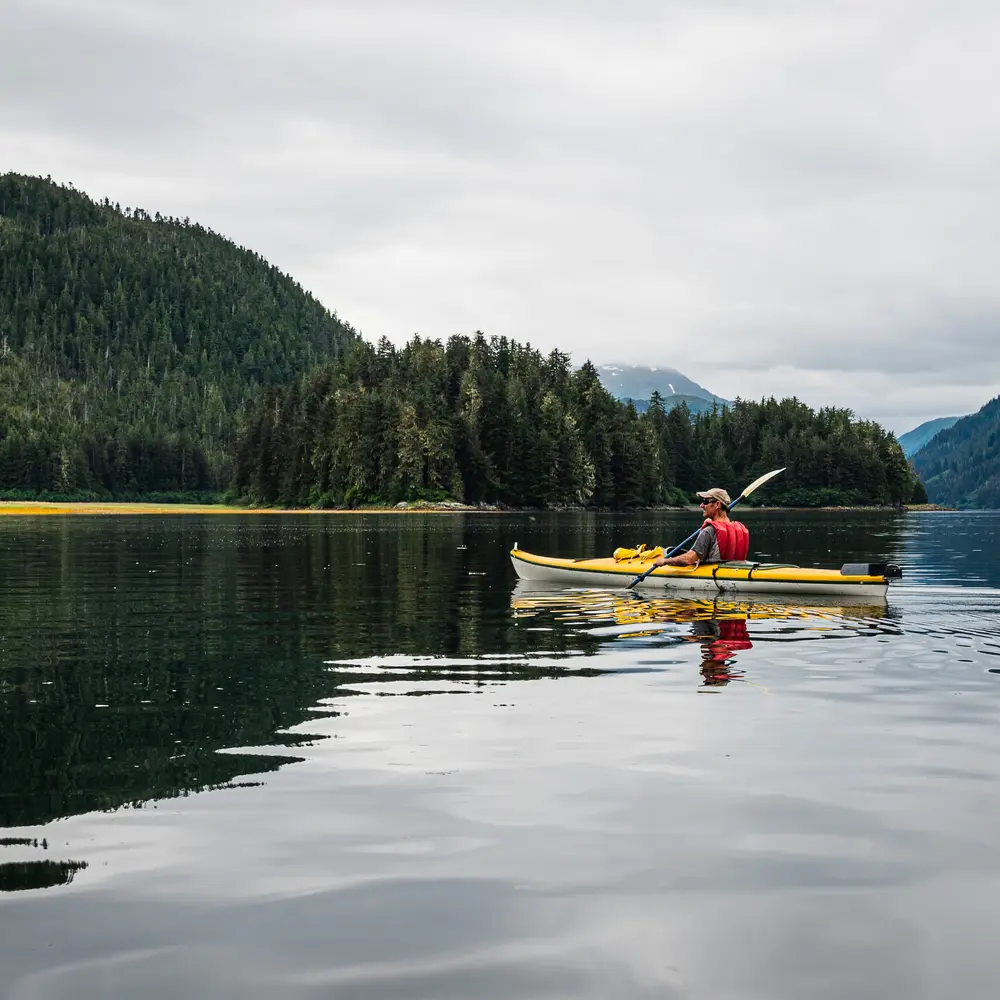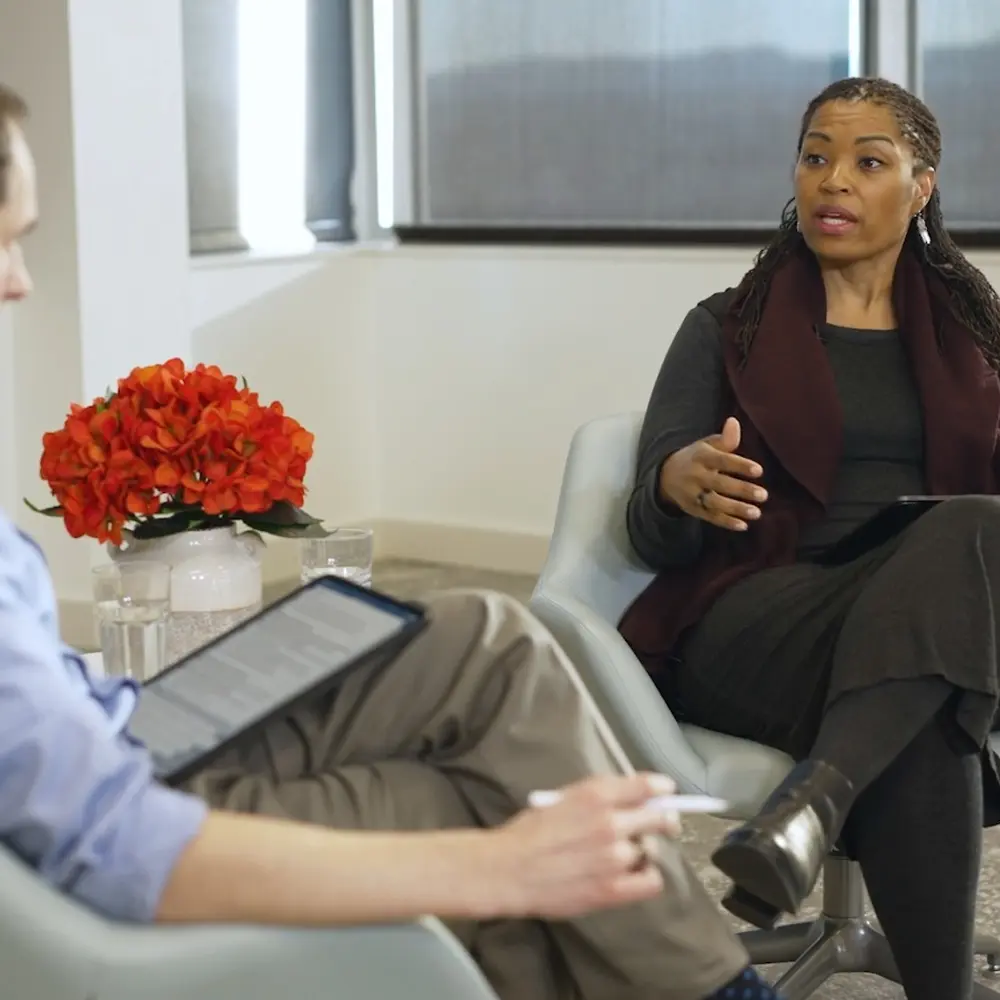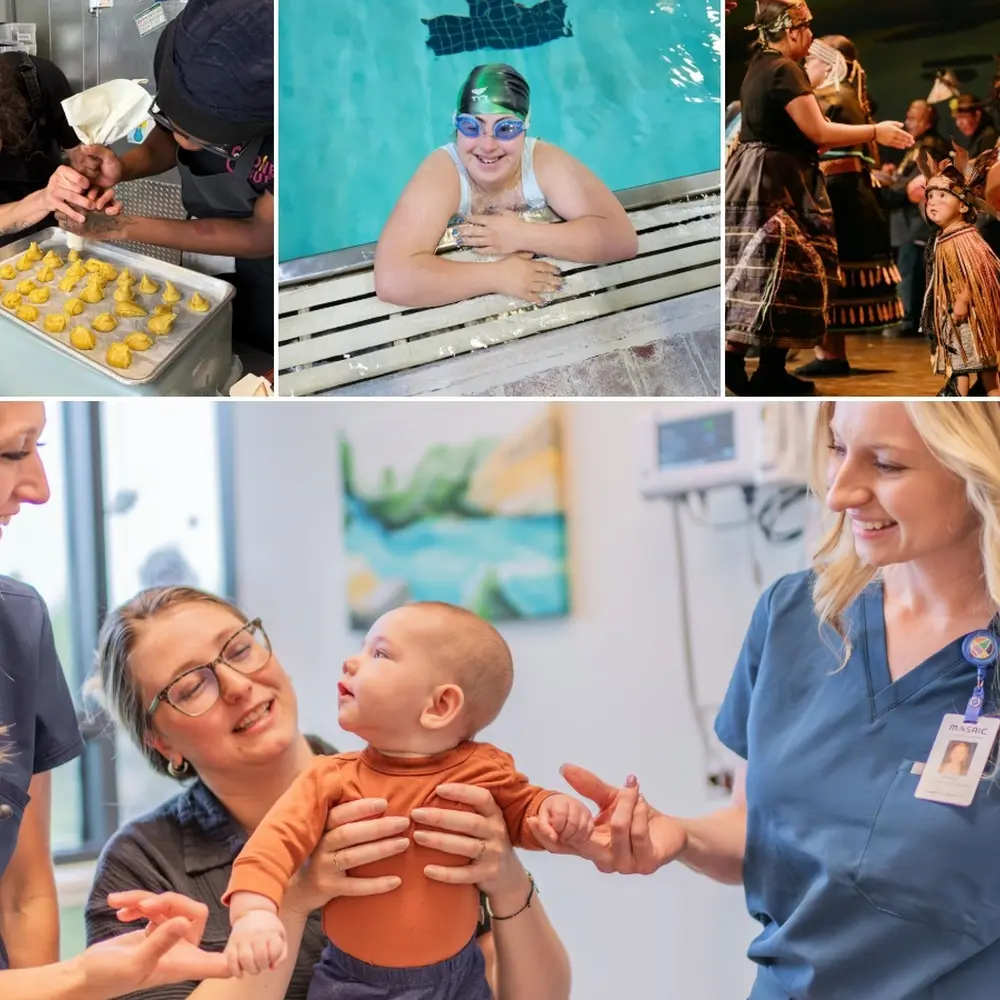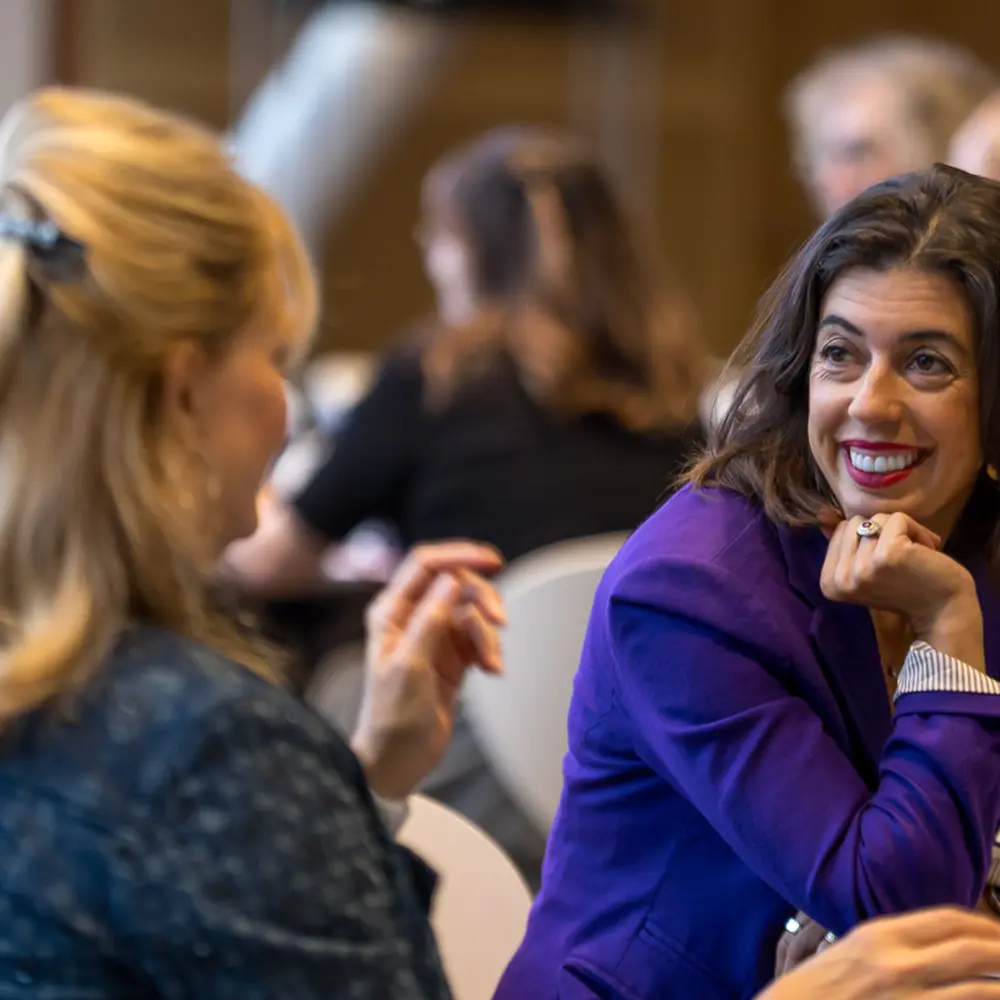2025 has been a year of rapid and significant change, with shifts in federal funding, new demands on philanthropic organizations, and increased demand for many social sector services all at once. In these moments, we think it's more important than ever to hear directly from nonprofits about the challenges they're facing and the opportunities they're seeing. This is just one reason we're so grateful to have partnered with the state nonprofit associations across all five states we serve – Alaska, Idaho, Montana, Oregon, and Washington – to host receptions and listening sessions at their annual conferences.
First, I want to pause and give a huge thank you to The Foraker Group, Nonprofit Association of Washington, Idaho Nonprofit Center, Montana Nonprofit Association, and Nonprofit Association of Oregon for hosting such outstanding conferences and letting us collaborate with them. I cannot stress how valuable these chances to connect and learn have been for our team, and we hope nonprofits felt equally supported, heard, and renewed in their work.
Second, we wanted to share some high-level learnings from these listening sessions. We heard from hundreds of nonprofit leaders who showed up honestly in these spaces and named challenges while celebrating the innovation and collaboration that has been a true hallmark of this year.
Before I share about some of our learnings, I want to acknowledge that listening is where we start. It is not where we end. Our goal is to listen with an ear toward both empathy and action, recognizing that both are important to achieve innovative, sustainable, and impactful solutions. I want to share what we’ve heard and commit to sharing how we are taking action.
Here is what we heard nonprofits tell us about challenges they're facing:
- Federal Funding Loss: Nonprofits are either having to cut programs, reduce staff, or consider sunsetting entirely in the face of federal funding changes. Nonprofits that haven't lost funding still operate in an environment of heightened concern and uncertainty, aware that the situation could change any day.
- Greater Demand for Services: Despite reduced funding, the last 1-2 years have seen an incredible increase in demand for services.
- DEI Program Uncertainty: Nonprofits are navigating federal regulation changes, with tribal nonprofits and culturally specific nonprofits being especially hit hard. This landscape is uniquely challenging for organizations equally committed to:
- Fairness in their service and equality of access.
- Support to individuals and groups who are furthest from the outcomes we hope for everyone in society who also share unique challenges, experiences, and demographics.
- Funding Model Barriers: Many nonprofits cannot get funded until they have been funded, leading to an “impossible loop.” Many funders also prioritize funding new projects and innovations, but general operating support is critical especially when federal support is unreliable.
- Knowledge/Relationship Gaps: Leadership changes around and after COVID have left a knowledge/relationship gap that incoming generations of leaders aren't always trained to fill.
- Staff Burnout: Staff and leadership are experiencing significant burnout, yet don't have a chance to rest because service demand is high.
- Specific Regional Challenges:
- In Alaska, the volunteer and donor base are aging out, leaving gaps. Healthcare deserts and transportation costs across regions continue to be a challenge for Alaska nonprofits.
- In Idaho, there is a less established philanthropic culture because of so many new residents, and there is donor fatigue amongst those who have been giving for years.
- In Montana, there is often a geographic funding divide, with rural areas receiving less support. Great distances between cities can be a challenge for statewide collaborations.
- In Oregon, government attention and intervention has created new fears within many vulnerable communities that nonprofits serve and shifts in funding priorities across the philanthropic sector have created additional uncertainty.
- In Washington, there is also often a geographic funding divide, with the more rural eastern half receiving less support.
Despite these significant challenges, nonprofits had lots to say about what's going well:
- Increasing Collaboration: Across Pacific Northwest nonprofits, there is an incredible spirit of collaboration. Nonprofits are increasingly leaning into partnerships as resources constrict, such as joint fundraising efforts, shared workspaces, and new coalitions.
- Community Support: While this varies across the region, many cities saw increased donor and volunteer engagement as community members stepped in to fill gaps.
- New Mission Focus: When resources are plentiful, mission creep is possible, but when resources constrict, nonprofits refocus on their mission and essential programming.
- New Operational Efficiencies: Though borne out of necessity, some nonprofits have introduced new efficiencies (creative staffing models, collaboratives, etc.) that they will continue even if funding support returns.
To those who shared honestly in these listening sessions, thank you for your vulnerability. Most importantly, thank you for showing up for this hard, necessary work every day. You are the backbone of the social sector.
Sharing what we heard is our first step in stewarding what you’ve shared, but it will not be our last. We will spend dedicated time considering what we heard in the context of our work, knowing that while we cannot address every issue that was raised, we have a responsibility to respond to those we can. You can anticipate more from us in the coming months.
As we wrap up our 50th anniversary celebration and look ahead to many more decades of collaboration, we remain rooted in this value Jack championed: remaining in relationship with and listening to those closest to the action. We hear nonprofits when they name the challenges they are facing, and we hope you hear in return our commitment to you: to keep listening and to engage in continuous improvement ourselves for the sake of a stronger social sector – and ultimately, for the vision of human flourishing that Jack Murdock longed to see in our region.
-Romanita Hairston, CEO

